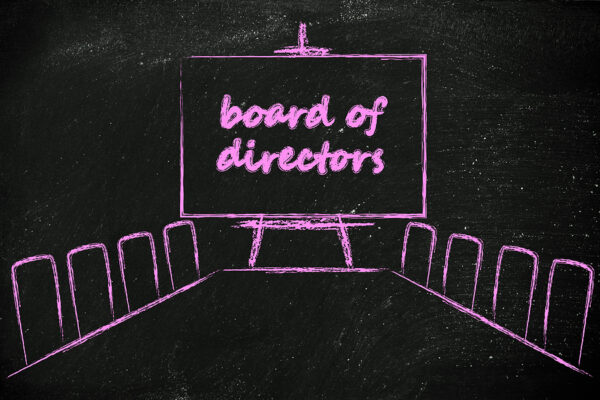Productivity. That’s the word on everyone’s lips when it comes to summing up the main challenge for the year ahead. From all sectors and across all disciplines, the primary focus for 2008 is increasing productivity. It’s essential – and the main way companies in New Zealand (and hence the whole economy) are going to be able to achieve sustainable growth in coming months.
The New Zealand economy has been bubbling along nicely, largely as result of its ability to soak up the copious pools of ready and willing labour. With these pools now not only dried up but facing serious drought (not to mention the growing US economic woes, the effects of which will be felt here), the only way to create sustainable economic growth will be through increased productivity. Put simply – expansion will only come through doing things smarter.
A large part of this productivity challenge is how to raise the capital spend of New Zealand organisations, says New Zealand Institute chief executive David Skilling.
“One of the reasons Australian firms are more likely to invest in capital than New Zealand ones is the size of the market. If you are 20 million person market, the incentive to invest is greater than in four million person market,” he says. Which leads to the incentive for, and importance of, New Zealand firms finding larger markets – Australia and further afield.
“A key part of the challenge is around going global either by investing overseas or exporting,” Skilling says. These efforts must be backed, from policy perspective, by things which encourage exporting.
The more amorphous aspect of productivity, says Skilling, covers such things as how good firms are at adopting new technology, finding new business models and new ways of doing things.
From an organisation’s perspective this includes the quality of management and ‘soft culture’ initiatives aimed at getting more from the same resources.
“New Zealand firms have done good job of getting costs out of their budgets. We’re pretty low-cost economy. I think businesses here are pretty used to operating on the smell of an oily rag so there might be more on that dimension.”
Increasingly, Skilling says, the challenge is how do we extract more value from each unit we sell. How do we find bigger margins, how do we find bigger markets, how do we find new products or services that people are going to pay more for.
Often, he says, this doesn’t come down to new technology, rather to new ways of delivering things.
“The productivity challenge moves from the reasonably hard stuff (how do we invest more, what are some policy levers we can pull?) through to the business models (how responsive are New Zealand firms, how good are our managers?),” Skilling says.
“Government has responsibility but at the end of the day it is firms which are going to be doing the things which drive productivity. You need both operating in concert.”
He believes it “absolutely can be done” and that success comes down to aspiration and commitment – at firm level but also at government level.
Skilling cites countries including Ireland, Israel and Finland as examples of economies which have experienced strong economic take-offs. “There’s no reason small countries can’t do lot better,” he says.
Picking up on Skilling’s quality of management theme, NZIM chief executive David Chapman says this is definitely an area which needs working on.
He is keen to keep some of the spotlight on managers, saying the upskilling of people and building of management capability remain the pre-eminent issues for New Zealand and its economy.
Chapman agrees that workplace productivity is critical issue but says the collective understanding of exactly what productivity is in today’s new technology context is fairly limited. “We often have the technology to enhance productivity but not the people equipped to take advantage of the technology. That’s part of the upskilling issue. The issue of productivity also comes back to delivering education and training – often this lacks focus or relevance to today’s workplace,” he says.
Alasdair Thompson, chief executive of EMA (Northern), defines productivity as the process of raising total sales and total sales profitability by selling more at greater value and with bigger profits – which enables both workers and investors to have higher incomes.
“If we can do that in all businesses in New Zealand and all business endeavours, then we have increased productivity,” he says.
Thompson says in order to do this,
everyone needs to consider if their ‘product’ is as good as it can be and if they are doing all they can to make the product more valuable. He asks three questions around this – what opportunities are there for innovation, for better design and for selling to wider market?
Also, given the current tight labour market, it is hard to get “any workers let alone good ones” so employers and managers need to concentrate on “how they can get more [produce more and produce better quality] with less staff”. The answer to that, says Thompson, is to invest in new technology and automation to aid the human resources.
He visited Hong Kong last November and spent time with Stephen Lee from the Hong Kong Productivity Council who defined productivity as “the effective use of innovation and resources to increase the value-add content of products and services”. That, Lee told him, is the true source of competitive advantage that creates long-term economic viability and better standard of living for all.
The Hong Kong Productivity Council’s formula for this, explains Thompson, is ‘input’ (that is labour, capital and knowledge) leads to ‘productivity’ (creating and delivering customer value and improving operating efficiency) which in turn leads to ‘output’ (for example new applications and technology).
The tools to enable this are:
•business development and strategic planning;
•technology transfer and commercialisation;
•product design and engineering;
•improved business management of processes and logistics;
•production technology and processes;
•improved standards and quality (to minimise waste);
•improved HR management and people development (so they work smarter and contribute more); and
•benchmarking.
While many of these services are offered in New Zealand, the Hong Kong initiative is something Thompson would like to see operating here but is the first to admit he doesn’t know in quite what form.
“Ultimately though, each business has to decide what its definition of productivity is and then look at how to approach and improve each component,” he says.
Proof that productivity gains are needed comes in the form of data from the World Economic Forum, showing New Zealand’s global competitive position declined over the past year. The WEF’s 2007/08 Global Competitiveness Report ranks New Zealand 24th for competitiveness, down from 21st last year, out of 131 countries.
The 2007-2008 Index ranked the United States as the world’s most competitive nation with Switzerland in second position. Denmark, Sweden, Germany and Finland, followed by Singapore, Japan, the United Kingdom and the Netherlands make up the top 10 most competitive countries in the world. Australia is in 19th position – valuable five places ahead of New Zealand.
David Skilling says the survey again indicates that New Zealand’s relative competitive position is not improving. While some recently introduced policies, such as KiwiSaver, are likely to strengthen New Zealand’s competitive position over the long term, much more is required to improve our position in an increasingly fast-paced international environment.
Commentators agree that one way to do this – and an area which needs particular attention in New Zealand – is people productivity and cite several avenues this can take:
• An increase in flexible working conditions such as working from home, flexible hours, compressed working weeks, gap years (unpaid leave with the ability to re

Two new BEIA board members welcomed
Two new members have been welcomed to the Business Events Industry Aotearoa (BEIA) board following the organisation’s AGM. BEIA, which is the official membership-based association of New Zealand’s business events










